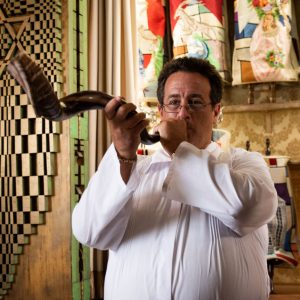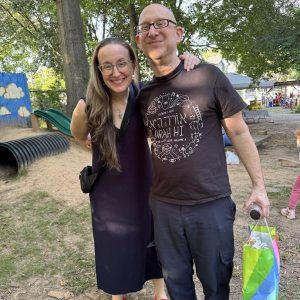Torah Commentary with Rabbi Laurence Rosenthal
Parshat Behukotai
Leviticus 26:3 -27:34
Walking the Walk
By Rabbi Laurence Rosenthal

This week, our sidra begins with three verbs which drive down deep the spiritual posture of the Jew.
אִם־בְּחֻקֹּתַ֖י תֵּלֵ֑כוּ וְאֶת־מִצְוֺתַ֣י תִּשְׁמְר֔וּ וַעֲשִׂיתֶ֖ם אֹתָֽם׃
"If, in My laws, you will go, and My Commandments you will protect and you will do them:" (Leviticus 23:3).
I know that the translation above is a bit choppy; I am trying to capture the tone and tenor of the Hebrew. Often, this verse is translated as "If you follow My laws and faithfully observe My commandments…" Although this is a bit cleaner, it misses the special touch of the text as it offers guidance into an important Jewish spiritual practice. Namely, "Practice!" Yes, Judaism has things to believe in, mottos and important expressions, ideas, concepts, theologies, and philosophies. However, they don't mean anything without a spiritual practice. To be a Jew means that you "do Jewish" in the world. This is the reason for the three verbs that begin our parsha. Belief in God and the concept of commandedness is helpful but doing the commandments and "walking" in the ways of God are primary. When we talk about Jewish Law, we use the word Halakha. However, the real translation for the word Halakha is "walking." This is what it means to live by and take Jewish law seriously. We walk it, as the English adage so aptly states, "walk the walk." This week's parsha reminds us that "being Jewish" has as much to do with the "being" as it does with the "Jewish."






























